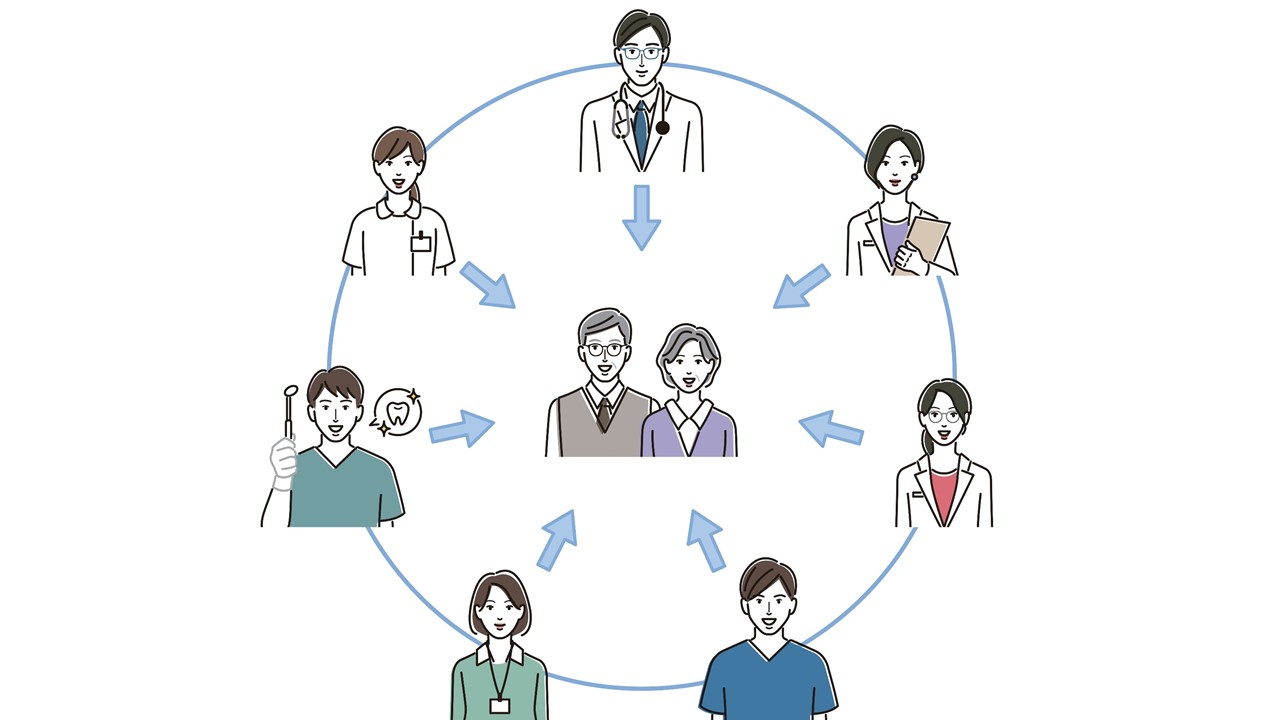ASOURCE®NAVI

公開日:2024.07.19
日本は急速な高齢化を迎えており、65歳以上の人口は現在3,500万人を超え、2042年には約3,900万人でピークに達すると予測されています。このような状況下で、団塊の世代が75歳以上となる2025年以降、医療や介護の需要が一層増加する見込みです。そのため、厚生労働省は高齢者が住み慣れた地域で自分らしい生活を続けられるよう、地域包括ケアシステムの構築を推進しています。
国は地域ごとに将来の医療需要を見据え、病床の機能分化などによって効率的で質の高い医療提供体制を整備する地域医療構想を進めています。地域医療構想は、医療資源の最適配置を目指し、急性期病床、回復期病床、慢性期病床の機能分化を進めることで、地域ごとの医療ニーズに対応した効率的な医療提供を実現することを目指しています。この取組みは、医療の質を確保しながら医療費の適正化を図るために不可欠です。地域構想の中で、地域包括ケアシステムが大きな役割を果たします。
市町村は、2025年を目指して3年ごとの介護保険事業計画の策定・実施を通じて、地域の自主性や主体性に基づき、地域包括ケアシステムを構築していきます。このプロセスにおいて軸となるのが、地域包括支援センターです。このセンターは地域の高齢者の総合相談、権利擁護、支援体制づくり、介護予防の援助などを行い、高齢者の保健医療の向上および福祉の増進を包括的に支援します。全国には5,431か所の地域包括支援センターが設置されており、支所を含めると7,397か所に達します(2023年4月末現在)。
地域包括ケアシステムを効果的に構築するためには、高齢者個人に対する支援の充実と、それを支える社会基盤の整備が同時に進められることが重要です。厚生労働省はこれを実現するための手法として「地域ケア会議」を推進しています。この会議は地域の関係機関が連携し、高齢者一人ひとりのニーズに応じた支援策を協議し、具体的な支援計画を作成する場です。
病気を抱えた高齢者が自宅などの住み慣れた環境で療養し、自分らしい生活を続けるためには、地域における医療・介護の関係機関の連携が不可欠です。厚生労働省は、関係機関が連携し、多職種協働による在宅医療・介護を一体的に提供できる体制の構築を推進しています。この体制により、高齢者が地域で必要な医療と介護を受けながら安心して暮らせる環境が整備されます。
地域包括ケアシステムの構築と地域医療構想の連携により、高齢者が住み慣れた地域で安心して暮らし続けることができる社会の実現を目指します。この取組みは、地域の自主性や主体性に基づき、それぞれの地域の特性に応じた支援策が求められる点で、地域ごとに異なる課題に柔軟に対応することが可能です。人材不足の解消、介護サービスの質向上、地域住民の意識改革、財源確保など、克服すべき課題は多く存在しますが、地域住民、医療・介護従事者、行政機関などが協力し、地域全体で高齢者を支える体制を構築することで、誰もが安心して暮らせる持続可能な社会の実現が望まれます。
メディアスグループは、医療機器の販売を中心とした事業を展開しています。医療に携わる私たち(Medical+us)は、医療現場や人々の健康的な明日へ役立つ情報をお届けする情報発信源(Media)の役割も果たしていきたいと考えています。